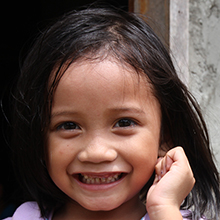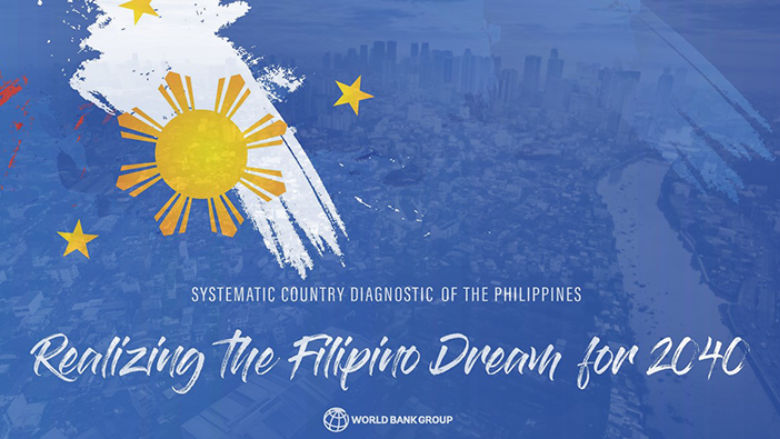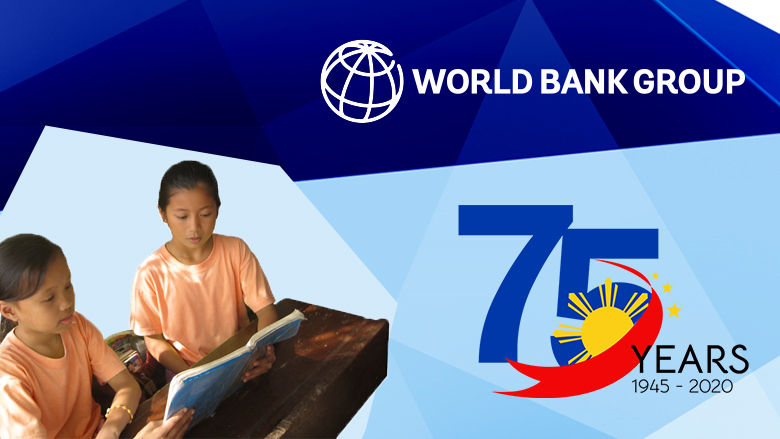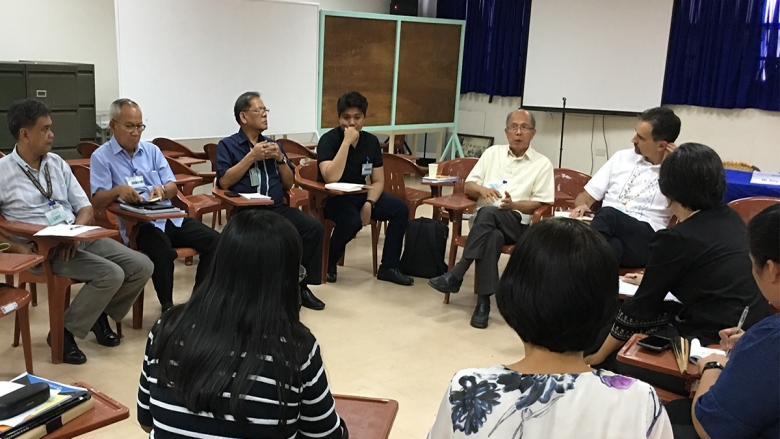The Bank’s development projects in the Philippines have produced significant results for the country’s peoplesince it extended it first loan, in 1957. In recent decades, Bank assistance has expanded to a wide range of projects and analytical work, policy advice, and capacity development in support of the Philippines’development agenda.
The Bank has supported one of the Philippine government's primary community empowerment and poverty alleviation programs, Kalahi-CIDSS. Since February 2014, Kalahi CIDSS received US$779 million in funding under the KC National Community Driven Development Project (KC-NCDDP). KC-NCDDP aims to empower poor communities and has delivered impressive results in remote and poor areas, including Indigenous communities. It has financed 54,578 subprojects, benefiting 17.5 million households. These subprojects, which include basic access facilities, (e.g., village roads), social services, environmental protection, and community utilities, have improved the lives of about 1.5 million Indigenous households. Since 2014, the project has mobilized over 2.1 million community volunteers, 35% of whom are women.
Impact evaluations found that the project increased per capita spending among beneficiary households by 12 percent; among households identified as poor at project start-up, the increase was even higher (19 percent).
Similarly, the Philippine Rural Development Project (PRDP), launched in 2015, aims to increase rural incomes, boost farm and fishery productivity, and improve market access nationwide. So far, it has benefitted over 1.3 million farmers and fisherfolk, nearly double its target of 760,000. Female beneficiaries have reached 508,350, surpassing the target of 342,000. The project has constructed and rehabilitated 2,110 kilometers of farm-to-market roads, reducing travel time by 66% in the dry season and 64% in the wet season, and cutting transport costs by 52%. A household survey shows that annual real income for farmer and fisher households benefiting from completed infrastructure rose by 26%, and incomes for those involved in agricultural enterprise subprojects increased by 46%.
Recognizing the central role of electrification in fostering inclusive growth, the government has made expanding access to electricity a priority. Achieving universal household electrification is challenging, because most of the remaining unelectrified households are in very isolated areas. Off-grid electrification using renewable energy systems is essential to meet these targets, given the country’s island geography and scattered population.
The Access to Sustainable Energy Project (ASEP) initiated in 2016, was designed to address this challenge. The project piloted and demonstrated, at scale, a financially and environmentally sustainable business model for off-grid electrification and inclusive growth. It provided 202,500 people, including 103,250 women and girls, with new or improved electricity services by adding 2 megawatts of generation capacity. As a result of the project’s success, the National Total Electrification Program adopted its business model.
In September 2020, as the Philippines tackled the COVID-19 pandemic, the Bank launched the Philippines Beneficiary FIRST Social Protection (BFIRST) Project to mitigate the impact on low-income Filipino households. This project supported the government's flagship conditional cash transfer program, Pantawid Pamilyang Pilipino Program (4Ps). It helped the Department of Social Welfare and Development develop and implement a digital transformation strategy, enabling over 4 million households to receive 4Ps benefits via electronic or digital wallets."
In March 2021, the Bank launched the Philippines COVID-19 Emergency Response Project to support the country’s national vaccination efforts, healthcare system strengthening, and overcome the impact of the pandemic, especially on the poor and the most vulnerable. It financed the procurement of at least 33 million doses of COVID vaccines in the Philippines, benefitting 7.5 million children, and facilitated the purchase of essential medical equipment. The ramp-up of vaccination enabled the authorities to open more economic activities, allowing the economy to grow 5.6 percent in 2021.
To strengthen the government’s capacity to manage risks from climate change, natural disasters, and disease outbreaks, the Bank approved the Fourth Disaster Risk Management (DRM) Development Policy Loan with Catastrophe Deferred Drawdown Option on November 2021. The operation is supported by the Bank’s Ready to Rebuild program, which helps local governments and communities anticipate disaster impacts and prepare recovery plans in advance. Some 1,800 governors, mayors, and technical staff from 350 provinces, cities, and municipalities from all 17 regions of the country—including people struck by Super Typhoon Rai—have undergone training. Another 450 technical staff from 150 local governments have been trained in the use of the GeoRiskPH platform, through which they can integrate hazard and risk information into local disaster risk reduction and management plans.
The project supported the government in developing the PlanSmart Ready to Rebuild application, which generates disaster recovery plans using science-based information. The platform enables disaster managers to anticipate what can happen in their area based on simulations. Over 500 people have been trained to use the app, and baseline data of 128 local government units have been integrated into the GeoRiskPH platform.
In the Bangsamoro Autonomous Region in Muslim Mindanao (BARMM), the Bank is supporting the peace process between the Philippine government and the Moro Islamic Liberation Front. Building on the achievements of the earlier Mindanao Trust Fund (2005–21), the Bank manages the Bangsamoro Normalization Trust Fund (BNTF), with contributions from Australia, Canada, the European Union, and the United Kingdom. The BNTF supports community-driven development, agricultural livelihoods, and farm-to-market roads in MILF camp communities. It also provides technical assistance for the decommissioning and planning and coordination of development efforts in the camps.
In the private sector, IFC has been a leader in developing the thematic bond market in the Philippines. In July 2021, IFC supported Union Bank’s social bond, which provided 4,000 loans to MSMEs in the country. In April 2022, it supported the issuance of BDO Unibank’s blue bond, intended to help tackle marine pollution and preserve clean water resources. In July 2024, IFC supported Ayala Land’s first sustainability-linked financing package to decarbonize its commercial real estate portfolio.
Last Updated: Oct 16, 2024







